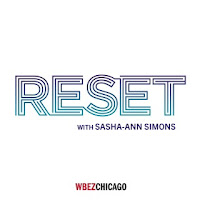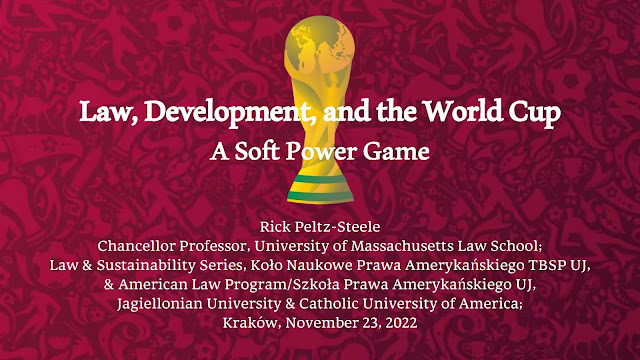The NHL Chicago Blackhawks Sunday will host an annual Pride Night, but the team will not be wearing warm-up pride jerseys as intended, for fear of jeopardizing the safety of Russian players and their families.
Yesterday I got to talk about the story with Sasha-Ann Simons of
Reset on WBEZ Chicago Public Radio. You can hear the
segment online. HT @ ace producer
Micah Yason.
WBEZ sports contributor Cheryl-Raye Stout related the facts and layered some nuance on the story. She expressed concern that Blackhawks staff had not consulted their three Russian players. In a Philadelphia Flyers case in January, a player refused to wear a pride jersey, citing his Russian Orthodox religion. It's unclear where the Russian Blackhawks stand.
No one disputes, though, that wearing the jerseys might be problematic for the players as a matter of Russian law and policy. In December 2022, Russia doubled down on the 10-year-old anti-gay law that was a source of controversy during the 2014 Sochi Olympics and the 2018 FIFA men's World Cup.
Under international pressure, Russia was permissive in enforcement of the law during those tournaments. But the failure of the International Olympic Committee and FIFA to reconcile their bold anti-discrimination rhetoric with host-country legal jeopardy for athletes and fans was a bad look and did no favors for human rights. More or less the same drama just played out again with the FIFA World Cup in the fall in Qatar, where homosexual acts are criminalized.
As enacted in 2013, the Russian law imposes civil fines on persons and business, and detention and deportation for foreigners, who engage in "propaganda" promoting same-sex relationships. Propaganda, though, really means any representation of social acceptability, including even the rainbow flag.
The law was enacted as a child protection measure and referred only to expression to children, though that scope encompassed mass media. In 2022, President Putin signed into law an amendment to broaden the law to cover expression to any person, child or adult, and to make plain that trans representations are prohibited, too.
 |
Russian refugees march in New York in 2013.
Bosc d'Anjou via Flickr (CC BY-NC-SA 2.0)
|
Thus, a Russian athlete photographed wearing a pride jersey in America might face legal repercussions upon returning home. But the risk is really much greater than just civil fines, I explained to Simons on
Reset. Informally, the law has signaled indifference by Russian authorities to brutal violence inflicted on LGBTQ persons, or even persons suspected of being LGBTQ, by vigilantes, if not law enforcement. An athlete abroad fairly might fear such reprisal upon returning home, or fear for her or his family meanwhile.
One thing I did not get to say on Reset, that I think is important, is that Putin's expansion of the anti-gay law is complementary of his war in Ukraine, because he perceives both as integral to preserving Russian identity against Western acculturation. Foreign Policy called the issues two sides of the same coin, and Putin has spoken of Western territorial aggression and social policy in the same breath. Doubling down on the anti-gay law in December was calculated as just another salvo in the war. That means, if Brittney Griner were not warning enough, that Putin is prepared to weaponize the law.
Our
Reset discussion touched on other related matters, such as the Iranian side's protest at the Qatar World Cup, which I wrote about
here in November and
spoke about in Poland. I've written previously on the
World Cup and sexual equality (with
Jose Benavides), the
World Cup and human rights, and
football and development.
A paucity of representation in top-flight world sport indicates that laws such as those in Russia and Qatar are hardly the only source of hostility toward LGBTQ athletes. In 2022, in the run-up to the men's World Cup, there was only one openly gay international footballer, and he didn't make the final cut for Australia's squad in Qatar. (There are openly lesbian players in women's world football.)
A good read in this area is Coming Out to Play (2014), an autobiography by Robbie Rogers, co-authored with Eric Marcus. An American and a Christian, Rogers played for Leeds United in the UK and for the U.S. Men's National Team. In 2013, he publicly disclosed that he is gay at the same time he announced his retirement from football, though he returned to the sport to play for four more years with the LA Galaxy in the U.S. MLS.







